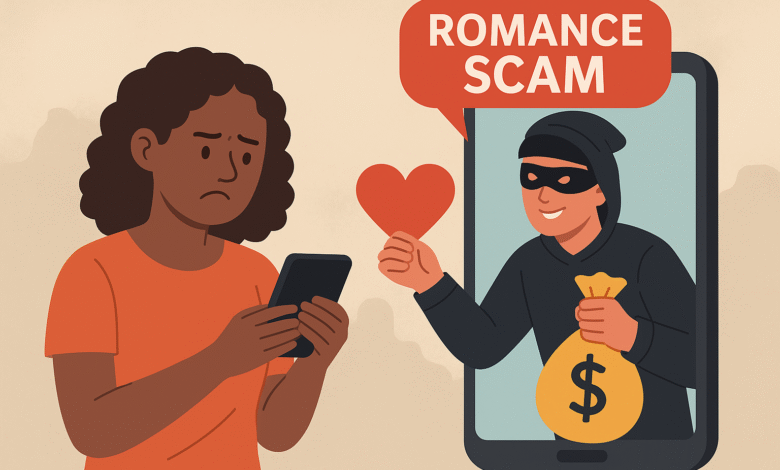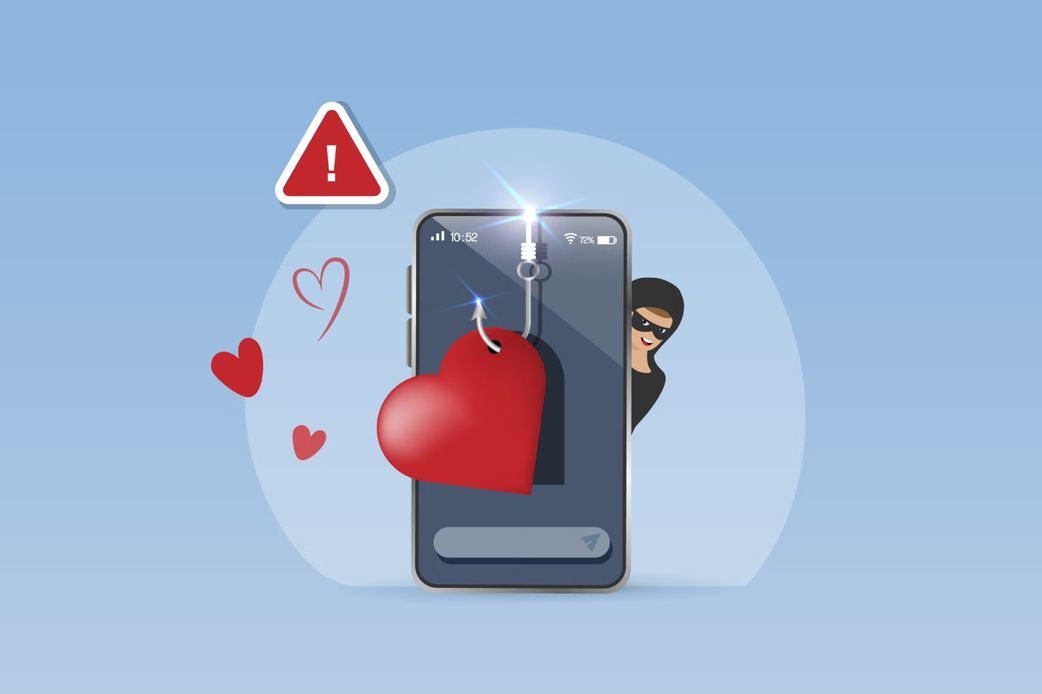Romance Fraud: These 5 countries are losing the most money to love scams

Falling in love has never been more dangerous, especially when it’s online.
Romance fraud, also known as love scamming, has become one of the most emotionally and financially devastating crimes in the digital age. It often starts innocently: a charming message on a dating app, deep conversations, and a connection that feels real.
But behind the affectionate messages and photo-perfect profiles could be a criminal syndicate orchestrating a calculated scam.
From fake identities and stolen images to emotionally manipulative storylines, these frauds are no longer the work of lone tricksters. Increasingly, they are run by organised crime groups targeting vulnerable people across dating sites, social media platforms, and even professional networks.
The COVID-19 pandemic accelerated the crisis. Lockdowns pushed millions online in search of connection. Scammers saw an opportunity—and took it. The result: billions lost globally every year.
MUST READ: ‘Shut up’ – Sam George fires back at Bawumia over Ablekuma North chaos remarks
So which countries are being hit hardest? Here are the top five.
5 countries are losing the most money to love scams
1. United States – Over $697 Million Lost Annually
The United States leads the world in financial losses to romance fraud. In 2024 alone, nearly 59,000 Americans lost $697.3 million. The FBI’s Internet Crime Complaint Centre reported almost 18,000 cases of romance and confidence scams.
READ ALSO: Hawa Koomson attacked by thugs as chaos erupts in Ablekuma North (video)
What makes the US particularly vulnerable is its large online dating industry, high internet usage, and active social media culture. The average loss per victim is $2,000, though many lose much more. Alarmingly, 38% of all new scam profiles are believed to originate from or target Americans.
2. United Kingdom – £106 Million Lost Annually (Approx. $130 Million USD)

Britain ranks second, with more than £106 million lost to romance scams each year. Reports rose by 22% in 2023 compared to the previous year, reflecting a rising trend.
READ MORE: Travelling solo? Here are 10 security items that should be in your bag
Despite high levels of digital awareness, many Brits still fall prey to these emotionally manipulative tactics. Authorities warn that romance scams can also serve as entry points for other financial crimes, including money laundering.
3. Australia – Over $33 Million Lost in 2023

Australia reports over $33 million in losses annually, with more than 3,400 cases recorded. The median loss per victim is nearly $10,000, well above the global average.
CHECK THIS OUT: Deadliest delicacies: 10 deadly animals that people actually eat around the world
Australian authorities highlight a concerning overlap between romance scams and fake investment schemes. After trust is established, victims are often persuaded to invest in fraudulent cryptocurrency or forex ventures.
4. Canada – $25 Million Lost Annually

Canadian victims lose around $25 million to romance scams each year, according to the Canadian Anti-Fraud Centre. Scammers often use professional-looking profiles and reach out through dating sites, social platforms, and even LinkedIn.
READ FURTHER: Top 10 strongest currencies in the world in 2025
The Royal Canadian Mounted Police note that scammers frequently pretend to be military personnel, healthcare professionals, or international workers—roles that provide excuses to avoid in-person meetings.
5. Germany – Over $20 Million Lost Annually

Germany rounds out the top five, with annual losses exceeding $20 million. Romance scams here tend to unfold over longer periods, with scammers investing months or even years into building fake relationships before asking for money.
READ THIS: Top 10 African countries with the highest personal income tax in 2025
German police have observed a troubling increase in scams targeting older adults, especially those who have recently experienced bereavement or divorce.
How Romance Scams Work: The Playbook

Despite differences in geography, the tactics used by romance scammers are strikingly similar:
Fake Profiles: Using stolen photos, often of models or military officers, scammers create convincing characters with elaborate backstories.
Quick Emotional Attachment: They express strong feelings early on, often declaring love within days.
Requests for Money: The story shifts. Suddenly there’s an emergency—travel, illness, or investment and a plea for financial help.
Isolation: Victims are encouraged to keep the relationship secret and ignore sceptics.
The Hidden Cost: Emotional Devastation
The financial toll is high, but the emotional damage can be far worse. Victims often report feelings of betrayal, shame, anxiety, and depression. The dual heartbreak of losing money and discovering a relationship was fake can leave long-lasting trauma.
CHECK THIS: Gov’t orders Engineers & Planners and Azumah Resources to resolve gold mine feud in 7 days
Studies show that romance fraud victims are more likely to face mental health challenges than those affected by other scams due to the intimate and personal nature of the deception.
How to Protect Yourself
Authorities across the globe share the same key advice:
Never send money or share personal information with someone you’ve only met online.
Be wary of individuals who fall in love quickly or refuse to meet in person.
Use video calls and reverse image searches to verify identities.
Take seriously any concerns raised by friends and family.
Report suspected scams to local authorities and the platforms involved.
What’s Next: Fighting Back Against Romance Fraud
Tackling romance fraud is difficult. The scams often cross borders, making enforcement complex. That’s why experts say solutions must include:
-
Stronger international cooperation
-
Smarter technologies to detect and remove fake profiles
-
Better identity checks on dating platforms
-
Public education to raise awareness
Online dating is not going away. But neither is romance fraud—unless we take it seriously. Through technology, regulation, and awareness, we can protect people from these emotionally and financially devastating crimes.
In a digital world where love can be just a swipe away, caution is more essential than ever. Because sometimes, the perfect partner online isn’t real—and they’re after more than just your heart.




